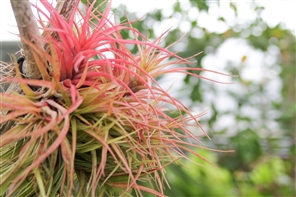Our Innovative Curriculum
Not your typical Biology Major
-
Start Here
BIOL 110: Exploring Biology introduces methods and central themes in biology that students will take with them through the curriculum. The course integrates collaborative work, lecture, and laboratory activities fluidly during class time. Students design and conduct experiments that they present at a department event. Biologists should take this course first.
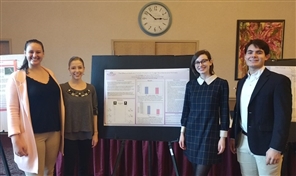
-
Second Step
BIOL 180: Exploring the Diversity in Biology and BIOL 190: Exploring the Unity in Biology complete our introductory series. Traditional “lecture” and “lab” activities are fully integrated in BIOL 180 where students dive deep into the diversity of life, evolution, and ecological systems. In BIOL 190, students focus on cellular structure function, information flow through genetic control, and the biological transformation of energy and matter across levels of organization. These courses can be taken in any order and sometimes are taken in the same semester.
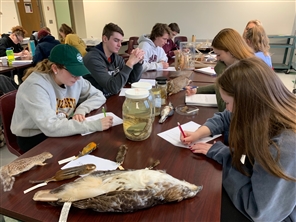
-
The Good Stuff
After completing the introductory series, students choose from more than 20 regularly offered courses that are divided into Theme Groups (Group A: Evolution, Diversity, and Systems. Group B: Information Flow, Energy and Matter Transformation and Structure/Function). While majors must take courses from each, there is plenty of room for students to focus on their interests.
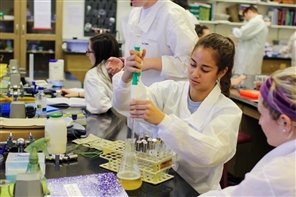
-
Allied Math and Science Courses
Our biologists gain the knowledge base necessary to meet their post-Roanoke goals while seeing direct connections to biology. Students take CHEM 111: General Chemistry Foundations I and CHEM 112: General Chemistry Foundations II to explore the principles of chemistry that biologists should know. PHYS 102: Introductory Physics for Life Science focuses on topics that are particularly important to biologists using biology examples (fall course). In Math 115: Quantitative Biology, students plunge into statistics and modelling giving them the quantitative reasoning tools they will need in their future work (spring and fall course).
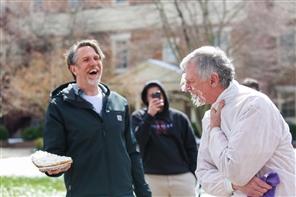
-
Cap Your Degree with Research
Our Bachelor of Science majors complete a senior research experience. Most students take BIOL 480: Capstone Research Experience where they design, implement and present a student-driven experiment. Other students personalize their senior research through Honors in the Majors or Senior Thesis working individually with a faculty member. Still other students incorporate their senior research experience into their Honors Distinction Project. No matter how they do it, our biologists put everything they learned together into one project that distinguishes them after Roanoke. To explore these options, click here.
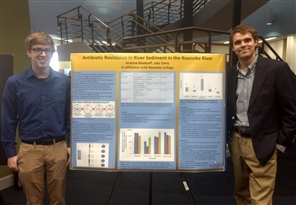
-
Our Curricular Roots
Our curriculum is built around six themes and four essential skills. To check them out, click here.
